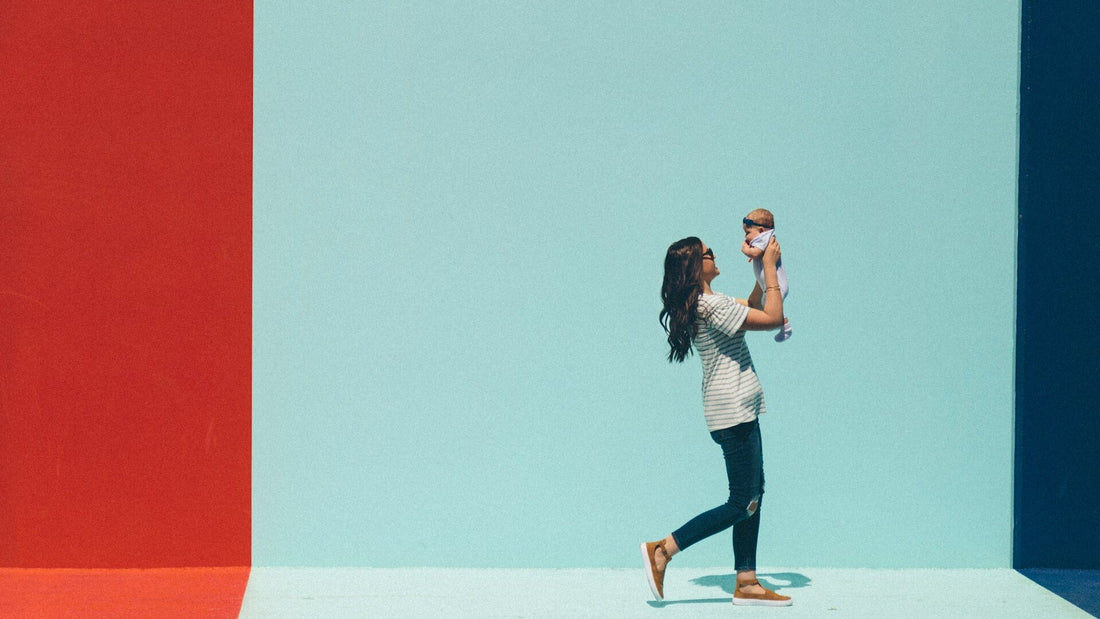Hej everyone,
Scandinavia is considered a global leader in equality, social security, and modern family policy. The role of mothers, in particular, differs greatly from traditional models in other parts of the world. But what makes motherhood so special in Scandinavia? How has the role of mothers changed over the years? And why is the Scandinavian model a model for many countries?
Immerse yourself with us in the lives of Scandinavian mothers and learn how they balance family life, career, and personal development.
The Scandinavian mother: A modern role model
While in many cultures the role of mother is often associated with traditional ideas of housework and childcare, the image of the mother in Scandinavia has changed significantly in recent decades. Here, the mother represents self-reliance, independence, and an active role in society.

In countries like Sweden, Norway, and Denmark, it's taken for granted that mothers work – not just for financial reasons, but because equality is seen as an essential part of society. Motherhood in Scandinavia doesn't automatically mean women have to give up their careers. Rather, structures are created that make it possible to combine both.
Scandinavian family policy: A paradise for parents?
A key factor in the modern role of mothers in Scandinavia is progressive family policies. The Nordic countries offer some of the most generous parental leave policies in the world.
Sweden:
Here, parents have a total of 480 days of parental leave, which can be divided flexibly between mother and father. There is also an additional "father's month" to promote equality.

Norway:
Parents are entitled to 49 weeks with full pay or 59 weeks with 80% of pay – also flexibly divisible.
Denmark:
Parental leave is 52 weeks, of which 32 weeks can be freely divided between both parents.
These generous regulations allow mothers (and fathers!) to take intensive care of their children without having to accept long-term professional disadvantages.
Working mothers: work-life balance is key
One of the biggest challenges for mothers worldwide is balancing family and career. Scandinavia has created a system that makes it easier for mothers to reconcile both.
Childcare:
In Sweden and Denmark, there are state-funded kindergartens throughout the country with affordable fees and flexible hours.

Flexible working models:
Many companies offer part-time options, home office opportunities, or shorter working hours to make it easier for mothers to return to work.
Equal parenting: Fathers take active responsibility in raising their children, which enables mothers to develop professionally.
Social expectations: Motherhood as a community task
In Scandinavia, motherhood is not seen as the sole responsibility of women. Instead, there is a strong culture of communal parenting.
“The village educates the child”: In Scandinavian countries, it is common for friends, family and neighbors to be involved in childcare.
Equality in partnerships: Fathers naturally take on responsibilities in the household and in raising children.
Open society for alternative family models: Single mothers, rainbow families or patchwork constellations are socially accepted and supported.

Motherhood and self-realization: A Scandinavian balancing act
A notable aspect of motherhood in Scandinavia is the importance of self-realization. While motherhood is an important part of life, the focus remains on the woman's individual development.
Lifelong learning:
Many mothers use parental leave for further training or new career prospects.
Health and well-being factor: Sport, closeness to nature and personal hobbies are seen as an important part of life.
Social support:
There are numerous networks and courses that help mothers maintain their identity alongside their role as mothers.
Challenges: Is everything really perfect?
Despite the many advantages, there are also challenges for mothers in Scandinavia:
Pressure to do “everything”: The expectation to perfectly balance family, career, and personal development can be stressful.
Childcare places are in demand:
Despite good infrastructure, there are long waiting times for daycare centers in some cities.
Equality has not yet been achieved everywhere:
In some sectors, women still earn less than men, although the difference is smaller than in many other countries.
Conclusion: A model for the future?
Scandinavian mothers benefit from a system that views motherhood not as an obstacle, but as an integral part of modern life. Generous parental leave, flexible work models, and an open society make it possible to combine family and career without having to make major compromises.
While many countries are still struggling to create similar conditions, the Scandinavian model shows that equality, motherhood, and personal fulfillment can go hand in hand. Perhaps it's time to be more inspired by this progressive mindset worldwide.
What do you think? Should the Scandinavian model be adopted in other countries? Let us know in the comments!

